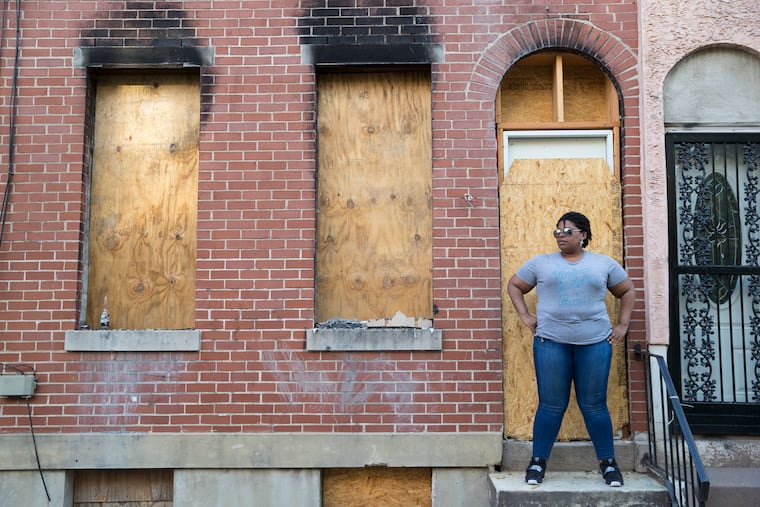How a legal task force combats Philly house stealing | Opinion
The Fraudulent Conveyance Task Force, created under the auspices of the Philadelphia Bar Association, recently reconvened to tackle the outbreak of house theft and use an array of legal and administrative solutions to respond to this unique crime.

Stealing houses is a serious problem in Philadelphia.
Bernard Wiggs’ house in Strawberry Mansion has been in his family for over 40 years. So he was surprised to receive a phone call from his son last year asking whether he had sold the house, because somebody was breaking in. Wiggs immediately went to the property and found a woman moving in. She told him that she had bought the house for $10,000 from the owner, Bernard Wiggs. But Wiggs had never seen the woman before and had certainly never sold his family home. Wiggs had been the victim of a deed fraud. And over a year later — even after filing a lawsuit — he’s still working to get his house back in his name.
The Fraudulent Conveyance Task Force, created under the auspices of the Philadelphia Bar Association, recently reconvened to tackle the outbreak of house theft and use an array of legal and administrative solutions to respond to this unique crime. With ever-increasing public awareness of deed fraud, the Task Force seeks to pinpoint where in the system these “fraudulators” are able to create fake documents and dupe innocent victims, convincing others that they own a property that belongs to someone else.
The Task Force brings together key stakeholders throughout the city and commonwealth that are dedicated to stopping this under-the-radar crime. Members include the City of Philadelphia’s Department of Records, Law Department, District Attorney’s Office, and Police Department. Other stakeholders range from state and local elected representatives, government officials, private and public interest attorneys, notaries, title insurance companies, and community organizations. Legal services agencies are active participants, since they often represent low-income clients who are unable to afford probate filing fees when a loved one dies, a problem that provides the opportunity for forged deeds in the names of dead people.
In just a few months, the Task Force has started forging ahead. It is creating a road map to assist potential victims in determining whether their property has been stolen, how to report it, and how to seek legal help. The road map is just the beginning of a more transparent communication system to track stolen properties, in search for one-time and repeated criminals.
Notaries, who must validate signatures on deeds, can also be intentional or unwitting accomplices to fraud. Stakeholders have voiced that notary stamps are easy to fabricate; that stamps are often stolen and used by an impersonator; and that record keeping and reporting requirements can be beefed up. The Task Force is researching efforts in other jurisdictions to curb notary fraud and hold notaries accountable.
The Task Force has also discussed whether the state law that governs deed recording can or should be amended to allow for greater detection and rejection of facially fraudulent deeds. But recommendations for reform must carefully consider the unintended consequences of holding up the deed-recording queue of thousands of documents, the possibility that valid deeds might inadvertently be rejected, and the impact of such delays on the ability of citizens and businesses to reliably buy and sell real estate.
In its work, the Task Force is thoughtfully evaluating the consequences of possible solutions and looking at what has worked in other places throughout the nation. We urge a deliberate and thoughtful process for making recommendations that make sense for Pennsylvania and minimize any harmful consequences. We welcome any stakeholders who wish to join us in crafting creative and responsive solutions to this rampant problem.
Thu B. Tran is a senior staff attorney in the Homeownership & Consumer Rights Unit at Community Legal Services. Mike Jones is the homeownership staff attorney at Philadelphia VIP.